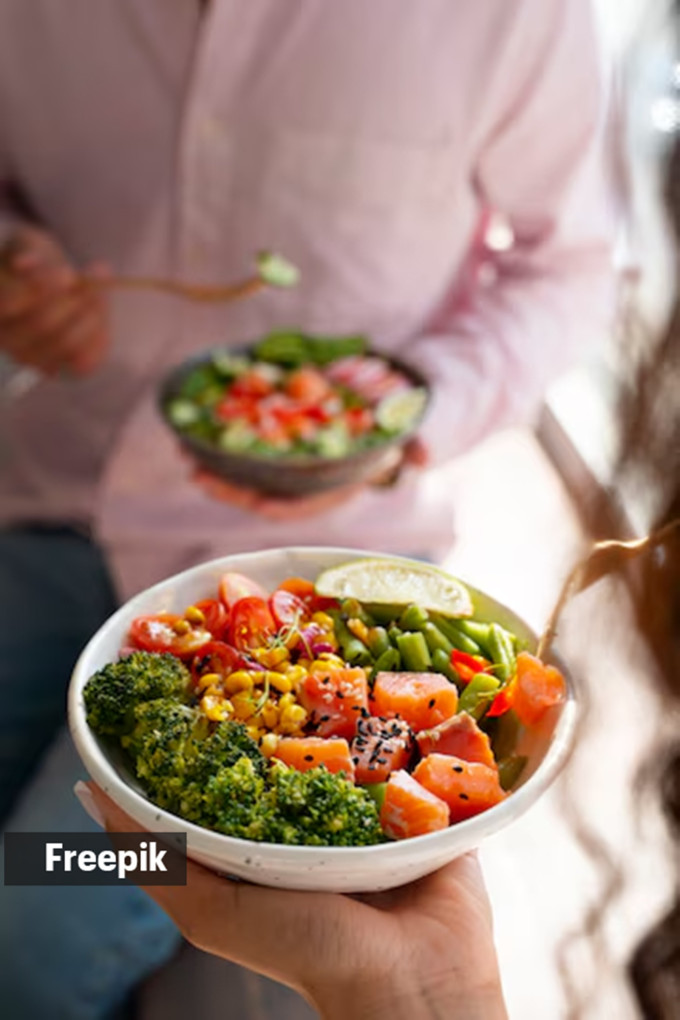Here’s how to eat like an Olympian and achieve the fitness level of some top athletes
The pursuit of Olympic glory requires not just rigorous training but also a carefully planned diet tailored to each athlete’s specific needs and sport.
As the saying goes, you are what you eat, and for Olympians, their diet plays a crucial role in fueling their bodies for peak performance. While there’s no one-size-fits-all approach to eating like an Olympian, understanding the nutritional strategies of top athletes can provide valuable insights for anyone looking to optimise their diet for physical excellence.

From Michael Phelps’ legendary 10,000-calorie diet during his training for the Beijing Olympics to the more moderate approaches of other athletes, the world of Olympic nutrition is diverse and fascinating. For instance, according to olympics.com, fencer Lee Kiefer emphasises balance and moderation in her diet, while swimmer Maggie Mac Neil indulges in ice cream alongside her nutritious meals. Boxer Tammara Thibeault maintains a vegetarian diet, adapting it to meet her protein needs during international competitions.
Sadhna Singh, senior nutritionist at Herenow Official, explains, “Olympic athletes don’t rely on a one-size-fits-all diet plan. Instead, they work closely with registered dietitians and nutritionists to develop a personalised strategy that meets their unique needs.”
These plans consider factors like:
Sport and Training Intensity: A marathon runner needs different fuel than a weightlifter.
Body Composition and Metabolism: An athlete’s body type and how they process food play a role.
Dietary Preferences and Restrictions: Allergies, intolerances, and cultural considerations are factored in.
Competition Schedule: Nutritional needs can shift leading up to, during, and after competitions.
“These plans are regularly reassessed, often every few months or after major competitions, to ensure they’re still meeting the athlete’s changing demands. It’s about staying adaptable and fine-tuning as you go,” says Singh.
Role of macronutrients (proteins, carbohydrates, and fats) and micronutrients in an Olympian’s diet
Singh mentions, “Olympic athletes meticulously balance their macronutrients — proteins, carbohydrates, and fats — to support their training and recovery.”
Carbohydrates are the body’s primary fuel source, she says, they provide the energy needed for intense workouts and competitions. Athletes focus on complex carbs like whole grains, fruits, and vegetables, which offer sustained energy release.
Crucial for muscle repair and growth, protein is a cornerstone of an athlete’s diet. They prioritise lean sources like poultry, fish, beans, and lentils.
Singh adds, “Healthy fats provide essential fatty acids, aid in nutrient absorption, and contribute to long-lasting energy. Athletes opt for unsaturated fats found in avocados, nuts, seeds, and olive oil.”
Micronutrients — vitamins and minerals — are equally important, she asserts, playing vital roles in energy production, immune function, and overall health. “Athletes ensure they’re getting enough by consuming a variety of colourful fruits and vegetables and supplementing when needed.”
 Healthy fats provide essential fatty acids, aid in nutrient absorption, and contribute to long-lasting energy. (Source: Freepik)
Healthy fats provide essential fatty acids, aid in nutrient absorption, and contribute to long-lasting energy. (Source: Freepik)
Common dietary challenges that Olympic athletes face when travelling internationally
Travelling is an essential part of an Olympian athlete’s life. However, it can disrupt even the most well-planned diets. Olympic athletes face challenges like:
-Unfamiliar Foods: Local cuisines might not offer the familiar options they’re used to.
-Limited Access to Healthy Options: Airport food or on-the-go meals can be less than ideal.
-Jet Lag and Disrupted Routines: Travel can throw off sleep schedules and eating habits.
To overcome these hurdles, athletes often:
-Plan Ahead: Pack healthy snacks and supplements to have on hand.
-Research Local Options: Seek out restaurants or markets with healthy choices.
-Prioritise Hydration: Staying hydrated is crucial, especially when travelling.
-Adapt and Adjust: Be flexible and make the best choices possible given the circumstances.
These strategies can benefit us too, says Singh. “When travelling or faced with unexpected situations, remember to plan ahead, make smart choices, and prioritise hydration.”
Balance between strict dietary regimens and allowing occasional indulgences
Singh states, “While Olympians follow strict dietary regimens, they also understand the importance of flexibility and enjoying the occasional treat. A rigid diet can lead to burnout and nutrient deficiencies, impacting both performance and overall well-being.”
Of course, moderation is key. It’s about finding a balance that allows for enjoyment without compromising overall health and performance goals.
📣 For more lifestyle news, click here to join our WhatsApp Channel and also follow us on Instagram
Disclaimer: The copyright of this article belongs to the original author. Reposting this article is solely for the purpose of information dissemination and does not constitute any investment advice. If there is any infringement, please contact us immediately. We will make corrections or deletions as necessary. Thank you.

